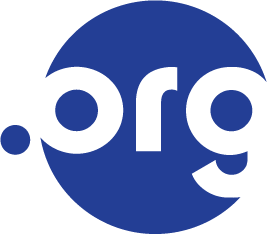


|
||
|
||
I recently discovered HBO’s new hit show, The Newsroom, which follows a team behind a nightly cable news program in their quest—in the name of ethical journalism—to deliver the best and most truthful news coverage to viewers. If you’re a fan of the show, you likely can understand how it made me think about how we consume, digest and respond to all of the information that media throws at us. Between the emails, embedded hyperlinks, tweets, pop-up banners, and mobile app notifications constantly popping up in our day-to-day lives, how do we cut through the clutter to differentiate between what’s important?
And when we need the facts, where are we most likely to turn for credible, reliable information?
So where do you turn for the most trusted source of information for a cause or charity? Would it be through social media or the organization’s website? We recently conducted a survey through ORC International to measure the level of trust consumers have in .ORG and their sentiments towards other online resources, such as social media, and found that 82% of survey respondents still think a website is the most trustworthy place to get information on a charity or social cause. Despite the growing rise and popularity of organizational social media pages and accounts, Facebook, YouTube and LinkedIn were respectively ranked second, third and fourth most trustworthy
At Public Interest Registry, we fully believe in the power of the Internet as a useful medium to spread knowledge, ideas and support for the common good. As the not-for-profit-operator of the .ORG domain, we have a responsibility to help maintain the integrity of the Internet by providing a trusted place online for organizations, companies and individuals to tell their stories and to mobilize their communities.
We were pleased to find that a large majority of all respondents (90%) associate a .ORG web address with the words “non-profit,” “trusted,” “exclusive,” or a combination of all three. Furthermore, nearly half (49%) of the respondents polled would choose to purchase a .ORG domain to relay information about a cause that they were passionate about. Other key findings include:
While these survey findings certainly help us validate our daily efforts to give more causes around the world a trusted online venue, they also demonstrate how audiences seek to connect with these causes and communities across the many Internet options available. As hundreds of new generic Top Level Domains (gTLDs) become available online in the months ahead, Public Interest Registry is working with the global community of non-profit and NGOs to ensure that the transformations coming to the Internet expand the opportunities for organizations and their causes around the world.
Written by Thuy LeDinh, Senior Marketing Communications Manager
Sponsored byCSC

Sponsored byRadix

Sponsored byIPv4.Global

Sponsored byWhoisXML API

Sponsored byVerisign

Sponsored byDNIB.com

Sponsored byVerisign
